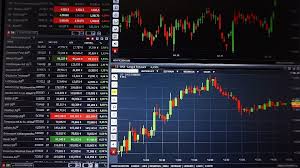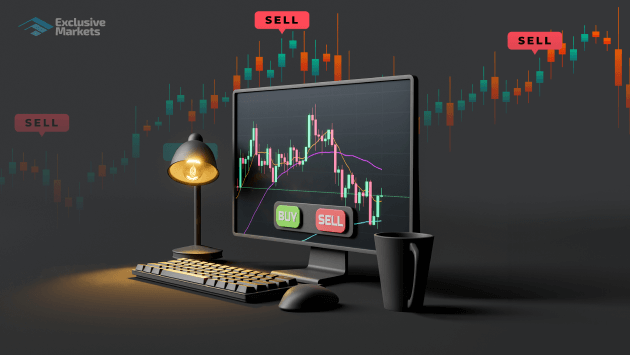
Choosing the Right Forex Trading Broker: A Comprehensive Guide
Selecting the right Forex trading broker is a critical step in your trading journey. With numerous brokers available, making an informed choice can lead to more successful trading experiences. In this guide, we will explore vital aspects to consider when selecting a Forex broker, including regulations, trading platforms, spreads, and customer service. For those who are keen to start their trading venture, you might want to check out forex trading broker ex-zar.com for more insights.
1. Regulation and Security
One of the most significant factors to consider when choosing a Forex broker is regulation. Regulatory bodies such as the FCA (Financial Conduct Authority) in the UK, ASIC (Australian Securities and Investments Commission) in Australia, and CySEC (Cyprus Securities and Exchange Commission) in Cyprus oversee Forex brokers and ensure they adhere to specific standards.
Choosing a broker regulated by a reputable authority adds a layer of security for your funds and ensures ethical trading practices. Always verify the broker’s registration and check for any past infractions or complaints.
2. Trading Platforms
The trading platform is the tool that will facilitate all your trading activities. When selecting a Forex broker, it’s essential to assess the platforms they offer. The most popular platforms include MetaTrader 4 (MT4), MetaTrader 5 (MT5), and cTrader.
These platforms provide various features such as charting tools, indicators, automated trading capabilities, and user-friendly interfaces. A demo account can also be beneficial, allowing you to practice trading without the risk of losing real money.
3. Spreads and Fees
Understanding the cost of trading is crucial for Forex traders. Spreads—the difference between buying and selling prices—can significantly impact your profitability. Some brokers offer tight spreads, while others might charge more.
Additionally, consider whether your broker offers fixed or variable spreads, and be aware of any commissions or hidden fees associated with trading. Always read the fine print to know exactly what you’ll be paying when trading with a specific broker.
4. Customer Support
Good customer support can make a substantial difference in your trading experience. When choosing a Forex broker, ensure they provide multiple channels for customer service, such as email, live chat, and phone support.
Test their response times and the quality of support before opening an account. The availability of multilingual support can also be a crucial factor, especially if you are not a native English speaker.
5. Account Types and Leverage
Different brokers offer various account types catering to different types of traders, such as beginners, experienced traders, or institutional investors.
Be sure to check the minimum deposit requirements, available leverage, and whether the broker offers managed accounts. Leverage can amplify your trading profits, but it also increases the risk of losses. Understanding how each broker approaches leverage is essential for risk management.

6. Educational Resources
For newcomers to Forex trading, educational resources offered by the broker can be invaluable. Look for brokers that provide tutorials, webinars, articles, and other educational materials.
Some brokers even offer mentorship programs or trading communities that can help you learn and grow in your trading journey. Continuous education can be your best weapon against the challenges you might face in the Forex market.
7. Trading Instruments
While Forex trading is the primary focus, many brokers also offer trading in commodities, indices, cryptocurrencies, and stocks.
If you plan to diversify your trading portfolio, consider a broker that provides a wide range of instruments. This will allow you to explore various markets without needing to open multiple accounts with different brokers.
8. Reviews and Reputation
Research the broker’s reputation online. Reading reviews from other traders can provide insights into a broker’s performance and reliability.
Look for broker comparisons and rankings to get a better understanding of where they’re viewed in the industry. However, be cautious about overly positive or negative reviews, as they can be biased or manipulated.
9. Withdrawal and Deposit Process
The ease of depositing and withdrawing funds is another essential aspect of choosing a Forex broker.
Check which payment methods are accepted, transaction fees, and the time it takes for withdrawals to be processed. A broker with hassle-free deposit/withdrawal processes will lead to a more satisfactory trading experience.
10. Compatibility with Your Trading Style
Finally, it’s crucial to evaluate whether the broker aligns with your trading style. Different traders have different preferences, so the ideal broker for a scalper may not be the best option for a long-term trader.
Reflect on your trading strategy and ensure the broker can support it with appropriate tools, resources, and account conditions.
Conclusion
In conclusion, selecting the right Forex trading broker is a fundamental step in ensuring your success in the financial markets.
By considering the factors outlined above—such as regulation, trading platforms, spreads, and customer support—you can make a more informed choice.
Remember that trading in Forex carries risk, and it’s essential to choose a broker that aligns with your trading goals and needs. With careful research and consideration, you can find a broker that not only meets your requirements but also supports your growth as a trader.
